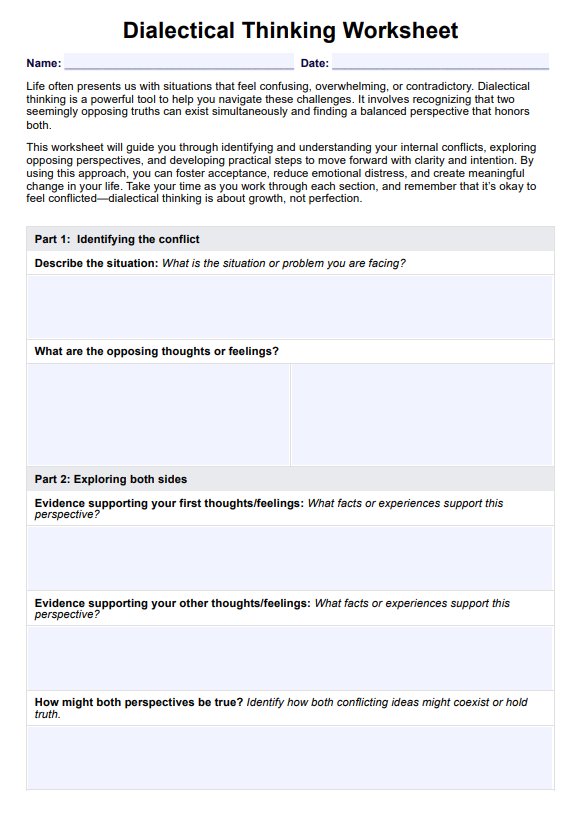Dialectical Thinking Worksheets are integral to dialectical behavior therapy, helping individuals practice DBT skills like emotion regulation, distress tolerance, and interpersonal effectiveness. By providing a step-by-step guide, the worksheets help clients reflect on their emotional minds, balance them with their reasonable minds, and access their wise minds to make better decisions. This approach promotes self-awareness and helps clients navigate difficult situations with greater emotional stability.

Dialectical Thinking Worksheet
Access our Dialectical Thinking Worksheet to help clients develop balanced perspectives and improve decision-making.
Dialectical Thinking Worksheet Template
Commonly asked questions
Yes, Dialectical Thinking Worksheets are flexible self-help tools that individuals can use outside therapy sessions. By working through the exercises independently, clients can strengthen their ability to regulate emotions, address cognitive distortions, and manage negative thoughts. This practice of DBT worksheets independently supports the development of emotion regulation skills and fosters the ability to handle emotional overload effectively.
These worksheets are beneficial for people struggling with various mental health conditions, such as anxiety, depression, and emotional dysregulation. They are especially helpful in dialectical behavioral therapy-based mental health programs, group therapy, or individual settings for those looking to improve their emotional health, cultivate present-moment awareness, and find the middle path between opposing thoughts and feelings.
EHR and practice management software
Get started for free
*No credit card required
Free
$0/usd
Unlimited clients
Telehealth
1GB of storage
Client portal text
Automated billing and online payments











